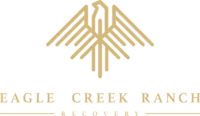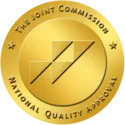OCD and Addiction Treatment in Idaho
 It is not uncommon for substance abuse and addiction and mental health issues to coincide. People suffering mentally often turn to drugs or alcohol as a way of self-medicating to feel better, even if that feeling is brief. While this may appear to be effective at the moment, long-term self-medicating using drugs or alcohol can not only make the mental health condition worse, but it can also lead to a slew of other issues as well including addiction.
It is not uncommon for substance abuse and addiction and mental health issues to coincide. People suffering mentally often turn to drugs or alcohol as a way of self-medicating to feel better, even if that feeling is brief. While this may appear to be effective at the moment, long-term self-medicating using drugs or alcohol can not only make the mental health condition worse, but it can also lead to a slew of other issues as well including addiction.
An example of this is OCD and addiction. We’ll explore what OCD is, its various types, signs, and symptoms, the connection between OCD and addiction, and the effective treatments available at Eagle Creek Ranch Recovery in Idaho. Dual diagnosis treatment is available for those suffering from a substance use disorder and mental illness.
Obsessive-Compulsive Disorder, commonly referred to as OCD, is a mental health condition characterized by intrusive thoughts (obsessions) and repetitive behaviors or mental acts (compulsions). These obsessions and compulsions can significantly interfere with an individual’s daily life, causing distress and impairment.
Some common examples of obsessive or intrusive thoughts include:
- Fear of germs of contamination
- Needing things to be in a certain order or arranged a certain way
- Unwanted aggressive or sexual thoughts
- Fear of making a mistake
- Constant feelings of doubt or uncertainty
OCD falls under the category of anxiety disorders, as obsessions often generate intense anxiety and compulsive behaviors are performed to alleviate that anxiety.
Types of OCD
OCD can manifest in various ways, leading to different types of obsessions and compulsions. Some common types of OCD include:
- Contamination – Individuals with this type of OCD fear germs, dirt, or contamination and engage in excessive washing, cleaning, or avoidance behaviors. They may wash or clean themselves to the point where it can do damage to their skin.
- Hoarding – Those with hoarding OCD struggle to discard possessions, leading to clutter and difficulty functioning in their living spaces. Depending on the type of items being hoarded and the amount, this can lead to dangerous living conditions.
- Checking – People with this type are plagued by fears of harm or danger and repeatedly check things like locks, appliances, or switches. This obsession can prevent those suffering from it from being able to go about their day or even leave their house.
- Order and Symmetry – This form of OCD involves an overwhelming need for things to be in a specific order or balanced, leading to repetitive arranging or counting rituals.
- Intrusive Thoughts – Individuals experience distressing, unwanted, and often violent or taboo thoughts, leading to mental rituals or avoidance behaviors. These thoughts can be sexual or even involve self-harm and death.
- Doubt or Uncertainty – This type of OCD comes with constant, reoccurring thoughts that the person hasn’t done something either correctly or completely. This form of OCD often accompanies checking OCD and can lead to someone constantly checking and rechecking things such as appliances and locks.
Contact Eagle Creek Ranch Recovery
Today!
Why Wait? Find The Help You Need By Reaching Out To Us Today! Our Admissions Team Is Standing By.
Signs and Symptoms of OCD and Addiction

While they are technically different conditions, both OCD and addiction share some common signs and symptoms. Recognizing these signs is crucial for seeking appropriate treatment.
Below are some of the signs and symptoms of both OCD and addiction:
- Intrusive and unwanted thoughts or images
- Repetitive and ritualistic behaviors
- Fear of losing control
- Intense anxiety or distress
- Avoidance of triggers
- Loss of control over substance or behavior
- Continued use despite negative consequences
- Tolerance and withdrawal symptoms
- Neglect of responsibilities
- Failed attempts to quit or cut back
Addiction vs Compulsion
While addiction and compulsion are related, it is important to remember that they are two very different ailments.
Compulsion refers to the repetitive behaviors or mental acts that individuals with OCD engage in to alleviate anxiety. On the other hand, addiction involves a complex relationship with a substance or behavior, characterized by the inability to control its use, leading to negative consequences.
Below are some examples of how addiction and compulsion are different:
- Acceptance and Denial – People with OCD often recognize their obsessions and compulsions even if they don’t necessarily seek help. On the flip side, those suffering from addiction often deny that they have a problem.
- Relief and Reward – Someone with OCD does not participate in their compulsive behaviors for fun or pleasure. They often hate doing them. With addiction, there is a perceived benefit or an enjoyable feeling associated with it (ie the rush of dopamine leading to feelings of pleasure and euphoria).
How are OCD and Addiction Connected?
As we touched on earlier, many people develop a substance use disorder as a result of their OCD. They may not fully understand what they are going through or may be too embarrassed to talk to someone about it, instead turning to drugs and/or alcohol as a way to relieve their symptoms, even if the relief is only temporary. This form of substance abuse can often result in the development of an addiction.
Conversely, there are also instances where a substance use disorder can result in the development of previously undiagnosed mental health conditions, such as OCD. Addiction can lead to chemical imbalances in the brain which can lead to the development of various mental and physical ailments.
Does OCD Cause Addiction?
While having OCD doesn’t directly correlate with addiction, the distress caused by OCD can contribute to the development of addiction such as substance use disorder. To try and take their mind off their obsessions and compulsions, someone suffering from OCD may turn to an activity or substance that they can ultimately get addicted to.
Treatments for OCD and Addiction

Treating both OCD and addiction simultaneously, also known as dual diagnosis treatment, requires a comprehensive and integrated approach.
Below are some treatment options for OCD and addiction, many of which we offer here at Eagle Creek Ranch Recovery:
Cognitive-behavioral therapy (CBT) is an evidence-based therapy that helps individuals identify and modify negative thought patterns and behaviors. By being able to properly identify the thought patterns and triggers of their OCD that lead to their addiction, the person can then learn healthier and more effective ways of coping with their OCD symptoms, without the use of drugs or alcohol.
Exposure and Response Prevention (ERP), a specific form of CBT, is particularly effective for treating OCD.
Antidepressants, particularly selective serotonin reuptake inhibitors (SSRIs), are effective in treating both OCD and certain types of addiction.Examples of these medications include:
- Prozac
- Zoloft
- Paxil
- Anafranil
Additionally, certain FDA-approved medications may also be administered to address some of the symptoms associated with substance addiction, particularly during the detox and withdrawal process.
Taking classes on mindfulness techniques and stress management skills can help individuals cope with triggers and cravings. Furthermore, these classes can also teach the person how the drugs and alcohol they were using negatively impacted their body and brain.
Many people who develop an addiction as a result of their OCD do so because they may not fully understand what they are going through, they may feel alone, or they may even feel too ashamed or embarrassed to talk to someone about their struggles.
Support groups provide a safe and supportive space for people to share what they are going through surrounded by a room full of people who can understand and relate to what they are dealing with.
Benefits of Dual Diagnosis Treatment for OCD and Addiction
It is important to treat both symptoms of OCD and addiction concurrently through dual diagnosis treatment. Since addiction often comes as a result of trying to cope with one’s OCD symptoms, treating one without addressing the other is not only not effective, but can often lead to relapse.
Below are some of the benefits of treating both OCD and addiction at the same time:
- Comprehensive Approach – Dual diagnosis treatment addresses both the mental health and addiction components, leading to more effective and lasting recovery.
- Root Cause Exploration – Treating both conditions simultaneously allows for a deeper exploration of the underlying factors contributing to OCD and addiction.
- Integrated Therapies – The integration of therapies like CBT and medication ensures a well-rounded and holistic treatment plan.
- Relapse Prevention – Learning coping strategies for both OCD and addiction reduces the risk of relapse into addiction.
Receive Treatment for OCD and Addiction at Eagle Creek
At Eagle Creek Ranch Recovery, we understand that addiction often accompanies a mental health condition that is oftentimes undiagnosed. That’s why we offer several different dual-diagnosis treatment programs, including OCD and addiction so that we can provide the most comprehensive help and treatment possible.
If you or a loved one is struggling with OCD and addiction and could benefit from our dual-diagnosis treatment program, contact us today.

Clinical Director
Kendall Maloof is the clinical director at Eagle Creek Ranch Recovery. She is a licensed marriage and family therapist and has held multiple leadership roles before settling here at Eagle Creek Ranch Recovery. Kendall received her master’s degree in marriage and family therapy from the Chicago School of Professional Psychology in 2016. Her career in mental and behavioral health began in 2014 when she took up internships in both the nonprofit and for profit sectors. She interned at multiple reputable companies, such as The Living Success Center and 449 Recovery in California.
In 2019, Kendall became the clinical director of Sunsets Recovery for Woman, a dual diagnosis program in southern California. Kendall is a natural leader. She has an incredible ability to problem solve and stay calm in any situation. Kendall never fails to show up when she is needed, and her calm demeanor makes her team and clients feel at ease. Eagle Creek Ranch Recovery is proud to have Kendall as our clinical director.


